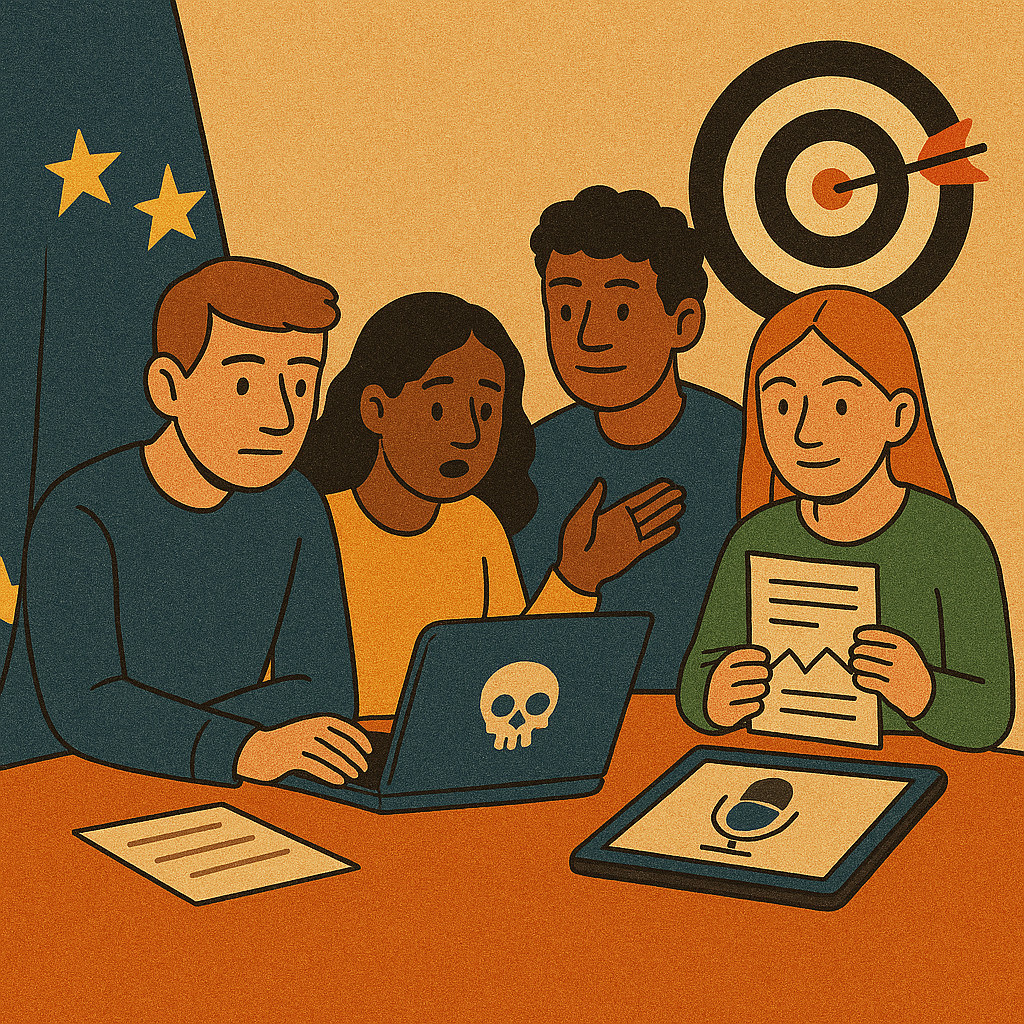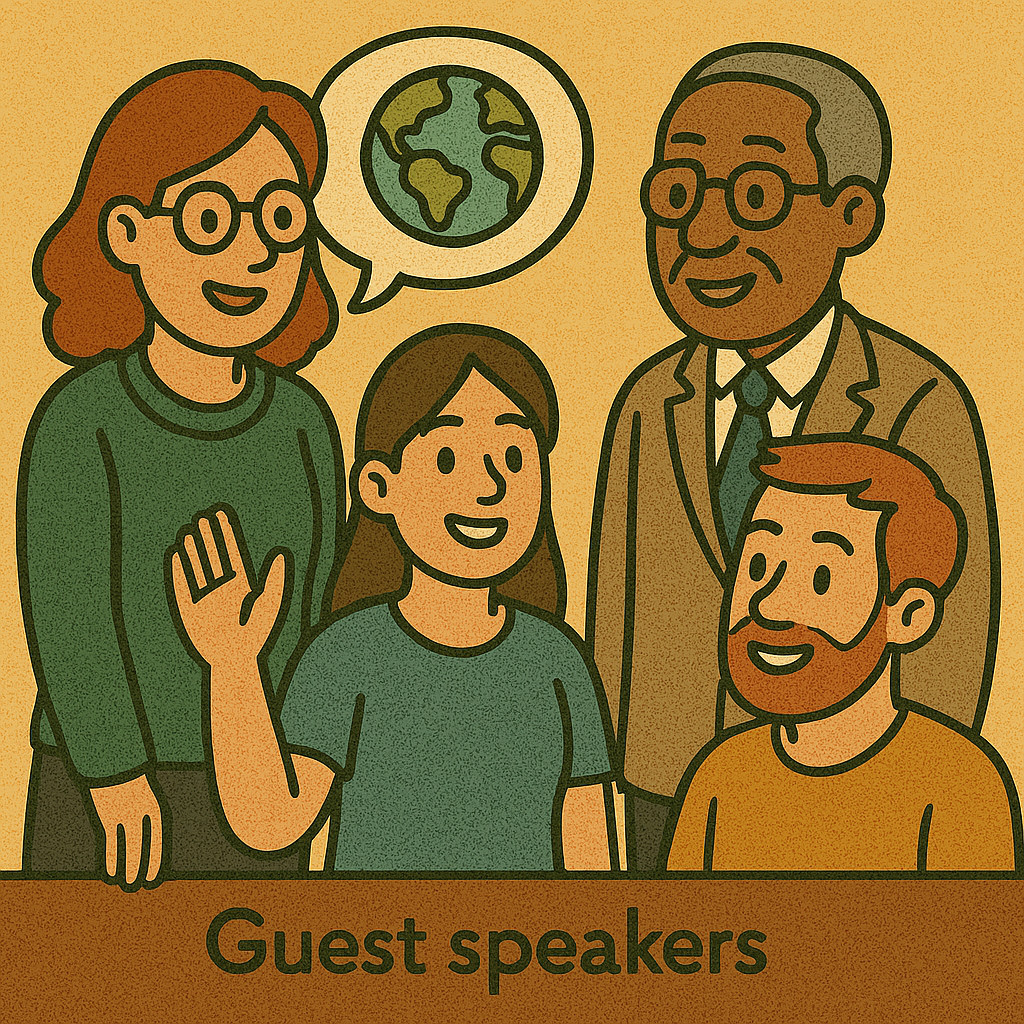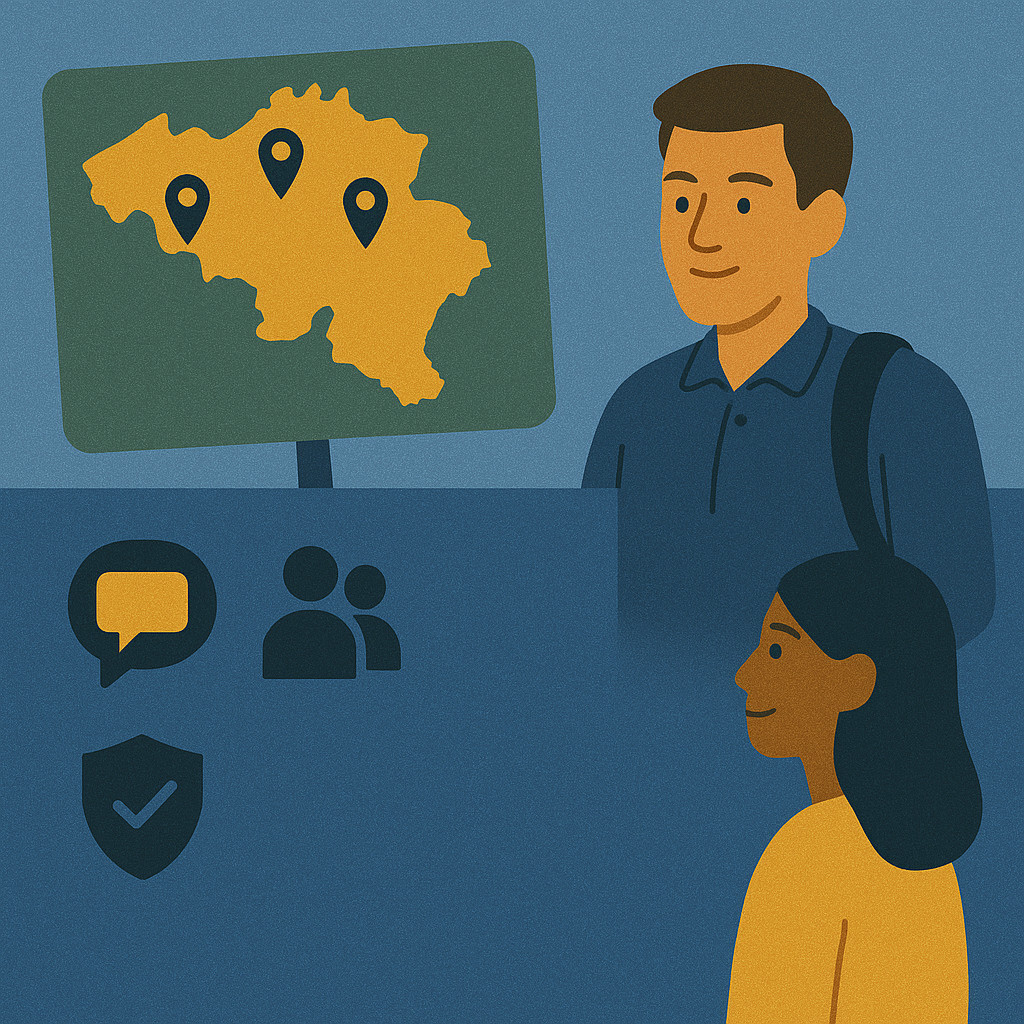Reporting Europe – Journalism in the EU’s Frontline Cities
A week-long editorial immersion for journalists who translate the European project to the public.
Reporting Europe – Journalism in the EU’s Frontline Cities
A week-long editorial immersion for journalists who translate the European project to the public.
🎯 What is the programme about?
Reporting Europe – Journalism Academy is not a press trip. It’s a hands-on editorial laboratory for journalists who want to understand how the European Union works — and how complexity, access, and political truth are negotiated under pressure.
Over five days, you dive into the heart of Brussels or Strasbourg to explore the intersections between journalism, institutions, policy narratives, and public accountability. From legislative briefings and high-stakes negotiations to disinformation flashpoints and media ethics, you’ll see how European stories are made — and remade — in real time.
This programme is built for journalists who don’t just want to cover the EU — but to question how it’s framed, who shapes the narrative, and what gets lost in translation. You’ll work in teams, report under deadline, decode political spin, and pitch stories that matter to real editors.
Hosted in Europe’s political capitals, Reporting Europe puts you face-to-face with policymakers, press officers, watchdogs, and correspondents. From press rooms to power corridors, from case studies to simulations, you’ll learn that covering Europe isn’t about simplifying — it’s about clarifying.
Because explaining the EU isn’t just a skill. It’s a democratic responsibility.

👥 Who is it for?
- Journalists, editors, freelancers across print, TV, radio, and digital
- Based in the EU, with limited experience covering the EU but a strong interest in building that beat
- Fluent in English, curious, collaborative, and editorially independent
- Ideal for all ages, open to all motivated professionals

📘 What will your week look like?
Each day blends briefings, editorial challenges, and ethical debates — designed to push your perspective and strengthen your journalistic credibility.
📘 Day 1 – Brussels decoded: who does what, and why it matters
The first day is about orientation — not just in geography or acronyms, but in the quiet mechanics of European power. You arrive in Brussels or Strasbourg with a notebook full of questions and a press badge that doesn’t yet open many doors. Around you: corridors of lawmaking, journalists on deadlines, and citizens who barely know what happens here.
We start by stripping back the labels. The Commission, the Parliament, the Council — not as institutions, but as sources, actors, and settings in the European story. What does each one actually do? How do decisions move? Who holds the pen — and who edits in the margins?
Through guided tours and live conversations with insiders, you begin to read the landscape. Not just what’s written on official agendas, but the unwritten rules of access, timing, and messaging.
In the afternoon, we sit down with seasoned Brussels correspondents — journalists who’ve covered treaty negotiations, walkouts, and midnight trilogues. They share what they wish they’d known starting out. How to avoid jargon. When to push. When to wait. And why European stories often live or die by how they’re framed.
By the end of the day, the EU no longer looks like a black box. It starts to feel like a beat — messy, complex, human. And it’s yours to explore. You leave the day seeing the EU not as a puzzle — but as a beat. Yours to own.
📘 Day 2 – How does Europe argue? Reporting the Parliament from inside
The second day drops you into the center of the storm — not the kind with shouting or breaking news, but the quieter, procedural drama of European democracy.
You step into the European Parliament. Its halls buzz with translation echoes, last-minute amendments, and shifting alliances. This is where politics meets procedure — and where stories are born.
You observe a live committee or plenary session (if the calendar allows), but the real action happens in the corridors. You meet parliamentary assistants who decode the pace and choreography behind every amendment. They talk deadlines, deal-making, and how much can change between “first reading” and final vote.
Then, it’s your turn. A briefing lands. It’s embargoed. The file is controversial. You need context, quotes, angles. In teams, you write a story under pressure — with limited access, incomplete facts, and a moving target. Just like real life.
The day closes in a newsroom circle. You read each other’s drafts. What nailed the headline? What missed the nuance? And how do you report politics in motion without losing the plot?
You leave the day with a deeper instinct: this isn’t a distant Parliament. It’s a livewire — and it’s your job to tell the story straight.
📘 Day 3 – What’s on the record? Access, opacity, and the architecture of power
By day three, you’ve found your footing — just in time to step into the most elusive spaces of EU reporting.
The morning begins at the Commission’s press room. The flags are lined up, the podium gleams, the questions are sharp — and so are the boundaries. You learn how narratives are shaped from the top down. Who gets to ask? Who gets ignored? What happens when the real answers live off-camera?
You speak with press officers and communication advisors from major DGs. They walk you through what’s said, what’s spun, and what never leaves the room. You begin to see that access doesn’t mean clarity — it just gives you the right to look for better questions.
Then comes the Council — and the real complexity begins.
No institution is more influential, or more misunderstood. COREPER, working parties, informal trilogues — the jargon piles up, and behind it, real power moves. You map out how national positions harden, soften, and shift depending on who’s in the room — and who’s listening back home.
By the end of the day, you’re not frustrated. You’re sharper. You start to read silence like a signal, and opacity like a clue. The EU may not always speak clearly — but you’re learning how to listen between the lines.
📘 Day 4 – Narrative battles: spin, silence, and the fight for facts
You’ve learned how power is structured. Now you face how it’s spun.
The fourth day takes you into the messy, high-stakes world where journalism, lobbying, and disinformation collide. You begin with stories you thought you knew — vaccine debates, rule of law concerns, climate policy flashpoints. But you peel back the layers and see what really shaped them: whisper campaigns, ghostwritten reports, weaponized data.
In small teams, you enter a scenario — a new “source” offers a scoop. Is it credible? Funded? Who’s pulling the strings? You start to see how influence disguises itself as truth, and how quickly noise can drown out nuance. Fact-checkers walk you through their trenches. Watchdogs show you how to trace dark money and digital footprints. Investigative reporters share what it feels like when your story becomes the next target.
It’s no longer abstract. It’s personal.
By the time the sun sets, your questions get sharper, your instincts stronger.
You understand that neutrality is not indifference — and that the choice to tell the full story is an act of democratic courage.
📘 Day 5 – Finding your voice, framing your Europe
The final day doesn’t close a chapter — it opens one.
You return to the newsroom space with something new: not just knowledge, but instinct. Your team has a story to pitch — urgent, cross-border, rooted in real lives and real consequences. You’ve followed leads, questioned sources, and now it’s time to stand behind your story.
Editors and veteran Brussels correspondents are in the room. Their feedback is sharp, but generous. They’re not here to grade you — they’re here to raise your game.
Then comes the pause. A deep breath. A conversation — not about institutions or deadlines, but about you.
What changed this week? What moments sharpened your curiosity — or your courage?
What tools do you now carry into your next article, your next interview, your next newsroom meeting?
In the final session, we build something concrete: your roadmap.
How will you stay connected to Brussels? How do you pitch from the periphery?
What stories still need telling — and who needs to hear them?
You leave not just with a notebook full of ideas — but with a clearer voice, a stronger spine, and a deeper sense that journalism doesn’t just explain Europe.
It shapes it.
🗣️ Guest speakers (based on availability)
Participants meet inspiring professionals such as:
- Brussels-based correspondents from top EU media
- Spokespersons and press officers from EU institutions
- Fact-checkers, researchers, and narrative analysts
- Editors and media trainers with a cross-border portfolio

🎓 What will you walk away with?
- Editorial tools for navigating and explaining EU institutions
- First-hand experience of Brussels as a reporting environment
- New contacts across the journalism and EU ecosystem
- A story portfolio, feedback and mentoring from senior editors
- A place in the Reporting Europe alumni network

🔧 Practical details
- Hosted in Brussels or Strasbourg
- Programme delivered in English
- Accommodation and travel support may be available for selected applicants
- Participants should bring a laptop and be ready for on-the-ground reporting

📩 Want to take part?
Whether you’re a freelance journalist, a newsroom staffer, or an editor building your EU coverage — reach out.
We’re here to support serious, independent reporting on the European Union.
Report better. Report deeper. Report Europe.